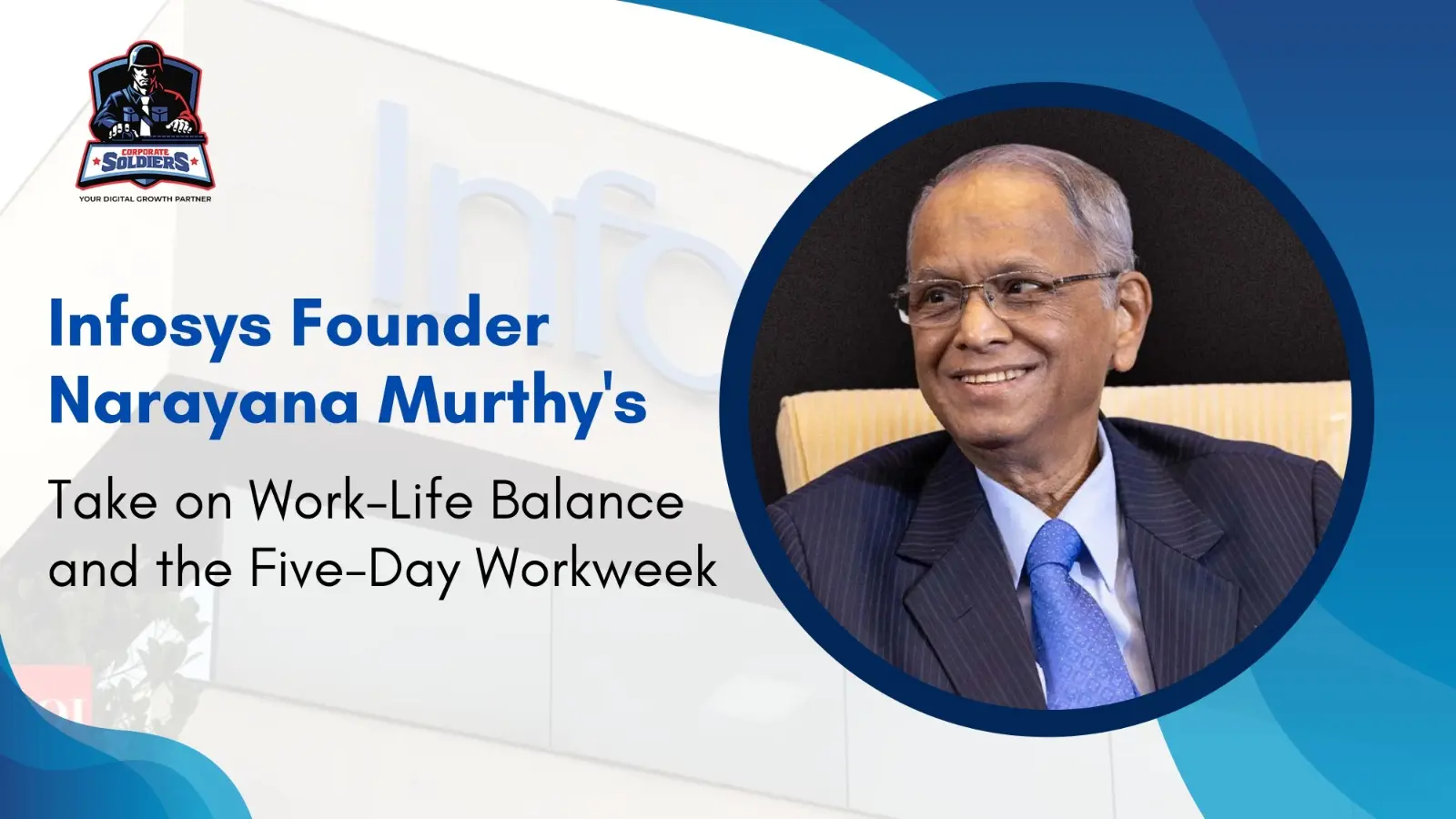Speaking in support of a 70-hour workday, Infosys co-founder Narayana Murty again spoke out against the concept of “work-life balance” at the CNBC Global Leadership Summit. He invoked the belief of KV Kamath that being a developing country, India’s problems should be put out front of the concept of work-life balance. Additionally, Murthy expressed his dissatisfaction with the move to a 5-day workweek back in 1986.
Mr. Murthy expressed his scepticism regarding the concept of work-life balance during the Summit. He remarked, “Prime Minister Modi likely dedicates around 100 hours each week to his duties. As his Cabinet Ministers and bureaucrats exert considerable effort, the most effective way to acknowledge the remarkable progress being made is through our own work.”
Disappointed with shift to 5-day workweek
He further voiced his discontent with India’s transition from a six-day to a five-day workweek in 1986.
“We need to work hard in this country. There is no replacement for hard work. That does not mean even if you are the most intelligent guy, you have to work hard. So I’m not going back on my views. I’ll take it to my grave,” Mr. Murthy said.
Narayana Murthy learned from his own career that he had to work for as long as 14 hours a day-six and a half days a week-on professional tasks throughout his career. “I’m very proud of it,” he said.
Mixed Reactions to Narayana Murthy’s Bold Stance on Work-Life Balance and Productivity
Murthy’s latest comments come after his previous connotation that young Indians should try to put in 70 hours of work per week to become more productive, which came back with mixed responses on social media.
Some came to his support, as he encourages a good work ethic, but others questioned how such a recommendation would be feasible or its eventual outcome on health and well-being.
To this observation, Murthy responded that the amount of criticism he felt did not deter him from believing in sustained hard work.
Murthy also compared India’s circumstances to the historical experiences of countries such as Japan and Germany, which successfully revitalised their economies through collective effort following World War II.
He argued that India’s youthful demographic bears a comparable obligation to aid in the nation’s progress within a competitive global market, using these nations as examples of what can be achieved through a committed labour force.
Implications for Contemporary Work Culture
Murthy does raise some fundamental questions for the future of Indian work culture. At a time when companies globally are embracing flexibility in work and also taking care of their employees’ well-being, Murthy’s insistence on putting in long hours is a complete contrast.
The backlash his comments received is indicative of growing awareness amongst employees about their rights and balancing work and personal life.
It also extends to wider perspectives related to the issues of income disparity and exploitation in society.
Critics observe that executives and employers can boast about longer working hours, yet often self-compensate themselves for doing so much more handsomely than the employees expected to keep pace with such schedules without proportionate pay increases.
Summing up
Narayana Murthy’s viewpoint on work-life balance and the five-day workweek is grounded in a traditional perspective shaped by his personal experiences and a sense of national pride.
His support for extended working hours as a strategy for promoting growth has ignited considerable discussion regarding the future of work culture in India. As society progresses, it will be imperative to find a balance between diligent work and mental health considerations to ensure sustainable development.
In conclusion, Murthy’s dedication to hard work is commendable, but it also begs important concerns about how we define success in the modern world—whether it be via unrelenting effort or balanced living that promotes both career and personal fulfilment.










